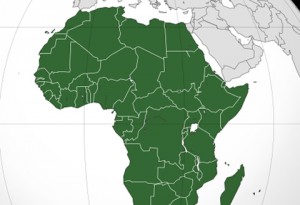Africa asked to build political leadership consensus
 Professor Adebayo Olukoshi, Director of the Africa Region for International IDEA, says African states must address the twin issues of the social contract and leadership consensus, if it they are to achieve more substantial democracies.
Professor Adebayo Olukoshi, Director of the Africa Region for International IDEA, says African states must address the twin issues of the social contract and leadership consensus, if it they are to achieve more substantial democracies.
He said while many countries on the continent had good electoral democracies, manifested in multi-party politics and successful elections, it was important for them to move beyond that to a democracy that ensured the effective delivery of quality lives for citizens.
He was speaking at a roundtable on the 2016 General Election, organised by the University of Ghana’s Department of Political Science and the International Institute for Democracy and Electoral Assistance (IDEA) on the theme: “Expanding the frontiers of Electoral Politics in Ghana.
Prof Olukoshi explained that citizens in such countries continued to be faced with challenges with basic needs such as rising utility prices, access to basic healthcare, education and others, noting that the social contract between governments and citizens must be fulfilled.
He also expressed the need for a leadership consensus around key issues which would draw a line on what could and cannot be done in governance, and which would be respected by all leaders irrespective of their political background.
“There is some much leadership impunity on the continent” he stated, bemoaning the incidence of leaders acting with impunity at the detriment of citizens and sometimes being supported by party sympathisers.
“There should be a code. There should be a line that you do not cross,” he stated.
Prof Olukoshi expressed the essence for the building of more robust public institutions and address issues like poverty and corruption, as well as those affecting broad macro –economic policies, in order to have a more substantive democracy.
Prof Ransford Gyampo, Senior Lecturer at the Political Science Department, speaking on issues of critical interest to Ghanaian voters, said the three major issues of interest to Ghanaian voters were Unemployment, Poverty and destitution and Unreliable supply of power.
According to him, the Northern, Upper East and Upper, as well as the Brong Ahafo and Central regions, identified poverty as the most critical issue in the elections, while unemployment was the key issue for people in the Western and Eastern regions and Unreliability of power supply for those in the Greater Accra and Ashanti regions.
Other issues included corruption, low quality of education, and healthcare among others.
He questioned the content and timelines of the release of political manifestoes and the extent to which the key issues would be addressed.
He also noted the need for a credible platform for the discussion of these issues and manifestoes of political parties ahead of the December 7 elections.
Dr Bossman E. Asare, Head of the Political Science Department of the University of Ghana urged political parties to be more concerned with educating voters on the elections and the content of their manifestos instead of buying their votes with cash or other donations, as had been recorded lately.
He also called on civil society organisations to name and shame those found to be indulging in such practices.
Source: GNA
